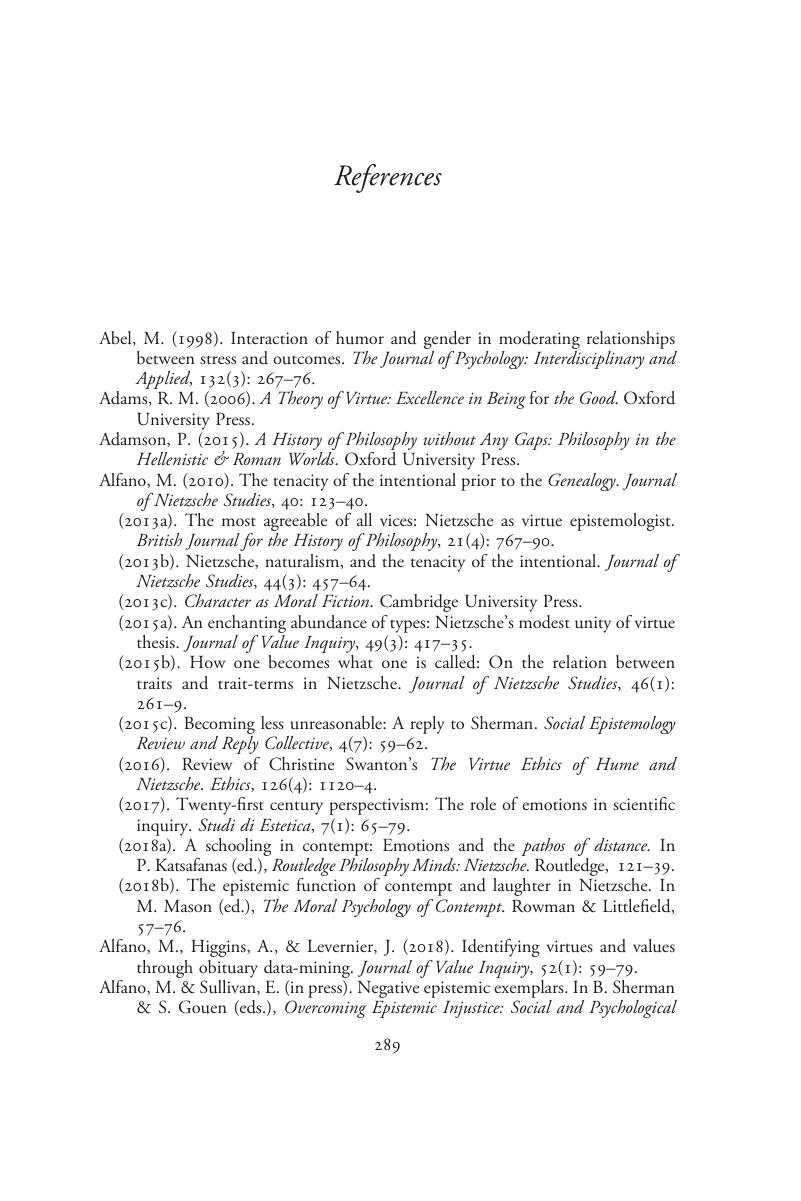Book contents
- Nietzsche’s Moral Psychology
- Nietzsche’s Moral Psychology
- Copyright page
- Dedication
- Epigraph
- Contents
- Figures
- Tables
- Acknowledgments
- Abbreviations of Nietzsche’s Works and Translations
- Part I Introduction
- Part II Nietzsche’s Socio-Moral Framework
- Part III Nietzschean Virtues
- Part IV Conclusion
- References
- Index
- References
References
Published online by Cambridge University Press: 19 August 2019
- Nietzsche’s Moral Psychology
- Nietzsche’s Moral Psychology
- Copyright page
- Dedication
- Epigraph
- Contents
- Figures
- Tables
- Acknowledgments
- Abbreviations of Nietzsche’s Works and Translations
- Part I Introduction
- Part II Nietzsche’s Socio-Moral Framework
- Part III Nietzschean Virtues
- Part IV Conclusion
- References
- Index
- References
Summary

- Type
- Chapter
- Information
- Nietzsche's Moral Psychology , pp. 289 - 297Publisher: Cambridge University PressPrint publication year: 2019



